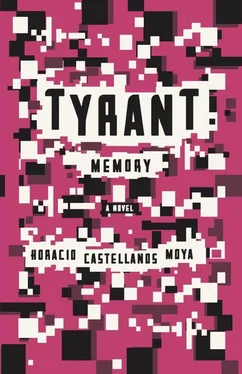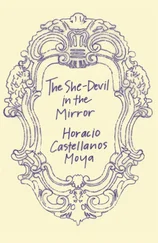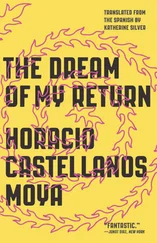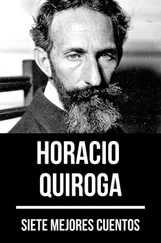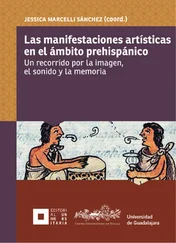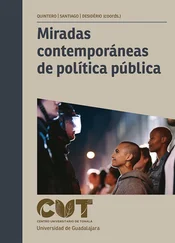“What plans? You don’t have any plans. Go out there and let them find you? Get on a train so the National Guard can nab you? Stop pretending to be some kind of hero. ”
Jimmy turns to look at him, at first in disbelief, then with disdain.
“I’m not going to bother explaining it to you. Of course, I have a plan. What I need is fake ID or a disguise so I can ride the train without being recognized, just like you got out of the capital dressed as a housemaid.”
“Even if you dress up as a whore, they’ll find you.”
Jimmy sits up; he picks up his glass and takes a sip of water.
Suddenly Clemen stares at him with astonishment.
“I have an idea,” he mutters.
Jimmy lies down with his back to him, annoyed, as if he weren’t listening.
“I have a great idea.,” Clemen repeats, sitting up, increasingly excited.
Jimmy remains quiet.
“Did you hear me? I have a great idea for how you can ride the train without anybody recognizing you and I can get to a different hiding place, no problem. ”
“Wow.,” he mumbles peevishly.
The priest coughs; his bed creaks.
Ash Wednesday, April 5
Clemen has not been captured, and I pray to God he manages to escape altogether. As to his whereabouts, all we know is that he left the radio station on Monday, moments after he spoke to me, a few hours before the rebel officers surrendered; since then, nothing. My whole being trembles just imagining that they might capture him. The rumors are gruesome. They say officers are being savagely tortured to get them to reveal the names of everybody who collaborated with them, the general himself is in the Black Palace overseeing the interrogations, they’ve already begun to prepare for the war council, and soon they will begin ordering executions. There’s a desperate stampede. They also say the Peruvian embassy is full of people requesting asylum; apparently things didn’t go well for those who sought refuge in the Mexican embassy, they didn’t know that Ambassador Méndez Plancarte is a fervent admirer of the general — he has boasted of it more than once right in front of Pericles — and he would never open the doors to any rebel officer. They also say Colonel Tito Calvo arrived at the American Embassy in a tank, certain that the United States would give him political asylum, but when he descended from the tank to enter the compound, the Marines blocked his way; the colonel had a shouting match with them, rained curses down on them, then returned to the tank to go to another embassy, and that’s when the general’s troops fell upon him and took him away.
I went to the Central Prison twice today, demanding that they let me see my husband, but I had no luck. Colonel Palma refused to see me, and Sergeant Flores didn’t even come out so I could give him the provisions I’d brought for Pericles. Outside the Central Prison, I met up with the mothers of Merlos and Cabezas; we shared our concerns and fears. Thank God my mother-in-law called me before dinnertime to tell me we must pray for Clemen but that nothing will happen to Pericles, the general will not retaliate against those who did not participate in the coup, the colonel is certain of that — the president himself knows that General Marroquín and Colonel Tito Calvo have always had grudges against my husband. I felt greatly relieved. I called Doña Chayito, Merlos’s mother, right away to tell her what my mother-in-law had just told me; she promised to tell Doña Julita, Cabezas’s mother, tonight. We agreed to meet tomorrow at nine o’clock in front of the Central Prison.
Pati called to tell me that she and Mauricio are trying to pull strings to get Clemen asylum at the Costa Rican embassy. I explained to her that the problem now is that all the embassies are surrounded by the general’s police, and nobody can go in or out without them knowing; I was going to tell her not to worry, we are dealing with the problem from here, then I remembered Father’s warning. Pati suggested we send Betito out of the country, have him spend some time in Costa Rica. I told her that Betito is a teenager, he is not involved in politics, so nothing will happen to him, even though the truth is that at this moment nobody in this country is not involved, even the children are talking about it.
A few minutes before eight I went to the servant’s room to look for María Elena, to tell her that the radio broadcasts were back to normal and invite her to listen to a new Cuban comedy show with me — we need a bit of distraction in the midst of so much misfortune. I found her on her knees, her face buried in the bed, as if she were praying, but she was actually crying inconsolably. I asked her what had happened. She said it was nothing and she was sorry, she’d soon be fine, and she got up and wiped her face off with a towel. I was very touched by the sorrow in her eyes. I told her not to worry, Clemen would weather this misfortune, God is watching over us. Sometimes you must pretend to be strong, full of faith and hope, even if inside doubts and fears are tearing you apart.
Holy Thursday, April 6
No news of Clemen. Everybody reminds me that no news is good news. But we mothers want some proof that our fugitive child is well, a word from someone who knows he is safe; without that, anguish festers in my heart.
My mother-in-law dropped by unannounced this morning, accompanied by my sister-in-law Bertita, Pericles’s younger sister. They explained that they had left Cojutepeque on the first train, at five in the morning. Mama Licha urged me to quickly prepare everything I wanted to take to my husband; they had come from the station in a hired car that was waiting in front. We soon left for the Central Prison. We had no problem getting in; Sergeant Flores was expecting us. They brought Pericles into the room where we were waiting; I couldn’t control myself, I ran up to embrace him and whispered in his ear that Clemens had managed to escape, and that Don Jorge was still alive; his eyes looked heavy, his clothes were a bit soiled, but he seemed to be in good spirits. “And you, what are you doing here with your rheumatism?” Pericles asked his mother, affectionately and with apparent surprise. All she said was that she’d had an urgent need to see him, to be certain he was doing well, and thanks to God the opportunity had arisen to pay him a twenty-minute visit, but she didn’t mention the colonel’s good offices. During the entire visit Pericles talked as if he was certain that somebody was taking detailed notes of our conversation: he asked after the family, Pati and Betito, Mila and the children, my parents and my sister, but not a word about the colonel or Clemen; he told of the hours of uncertainty he’d spent inside the Central Prison during the coup, prisoners and guards listening to every word broadcast over the radio, and wagers even being placed on who would win, the rebels or “the man”; he mentioned how tense the officers in charge were, how they kept expecting an assault at any moment; under his breath he cheered the outbursts of enthusiasm of a group of guards who dislike the general; he declared scornfully that anybody in his right mind wouldn’t even dream that a couple of cowards like Marroquín and Calvo would be able to defeat “the man”; he expressed sorrow at the fates of some of his acquaintances, and he made reference to several arrests I didn’t know about. I realized that more information is available inside the Central Prison than outside, and my husband, though he spoke in generalities, was surely right in the center of it all. I would have liked to finally ask him if he had foreknowledge of the coup, of Clemen’s participation, but he would never have forgiven such imprudence. We drank coffee and ate sweet rolls; Pericles ate a few bites of the provisions we brought him. The minutes flew by. Colonel Palma, the director of the Central Prison, came personally into the room to inform us that our time was up: he greeted my mother-in-law with a deep bow, then turned to me and Bertita; he exclaimed in a stentorian voice that Pericles had no cause to complain about how he was being treated, and he announced that now that the vicious traitors had been defeated, things would slowly return to normal, adding that next Sunday, Easter Sunday, as proof of the general’s magnanimity, I would be allowed to visit again; then he said it would be his honor to accompany us out. Mama Licha stood up and gave Pericles her blessing. When we embraced before parting, he whispered in my ear that I should tell Merlos’s and Cabezas’s families that they are both well, and he kissed me on my ear lobe, which he knows I love. As I watched them lead him out, I held back my tears and felt my heart clenching, as if I had found him after having lost him for a long time, and now they were taking him away from me again. At the large front doors, and with the same false obsequiousness, Colonel Palma sent a respectful greeting to my father-in-law and also to my “dear parents,” as if he knew them personally. I looked around for Doña Chayito and Doña Julita, the students’ mothers, but it was early, and they still hadn’t arrived. My mother-in-law asked me to accompany her to Clemen’s house, she wanted to see her great-grandchildren and say hello to Mila; we all got in the same car, which was waiting for us. As we were driving, I suddenly felt lighthearted, as if a great sadness had lifted; my mother-in-law made a few comments about the procession, about how pretty the carpets of flowers were in the streets of Cojutepeque. A contingent of secret police was posted at the intersection in front of my son’s house; a couple of them approached to sniff around when we got out of the car. Ana, Clemen and Mila’s housemaid, opened the door for us; she said the señora had just gone out and the children were playing on the patio. Mama Licha asked her if Mila would return soon; Ana, who is María Elena’s cousin, said she didn’t know, though I had a feeling there was something she was keeping to herself. Marianito came running up to us, such a lovely child, my favorite, and shouted with joy; Alfredito and Ilse ran up behind him: they’re still upset about Samba’s death; they led us to the patio, showed us the exact spot where the police had killed her. We stayed only a short while. Then my mother-in-law and Bertita dropped me off at my house; they were going to pay a couple of other visits, then return to Cojutepeque on the noon train so they would arrive in time for the procession of Jesus carrying the cross. María Elena greeted me with a message from Doña Chayito, who had been waiting for me in front of the Central Prison. I called to tell her what had happened.
Читать дальше
